-
Courses

Courses
Choosing a course is one of the most important decisions you'll ever make! View our courses and see what our students and lecturers have to say about the courses you are interested in at the links below.
-
University Life

University Life
Each year more than 4,000 choose University of Galway as their University of choice. Find out what life at University of Galway is all about here.
-
About University of Galway

About University of Galway
Since 1845, University of Galway has been sharing the highest quality teaching and research with Ireland and the world. Find out what makes our University so special – from our distinguished history to the latest news and campus developments.
-
Colleges & Schools

Colleges & Schools
University of Galway has earned international recognition as a research-led university with a commitment to top quality teaching across a range of key areas of expertise.
-
Research & Innovation

Research & Innovation
University of Galway’s vibrant research community take on some of the most pressing challenges of our times.
-
Business & Industry

Guiding Breakthrough Research at University of Galway
We explore and facilitate commercial opportunities for the research community at University of Galway, as well as facilitating industry partnership.
-
Alumni & Friends

Alumni & Friends
There are 128,000 University of Galway alumni worldwide. Stay connected to your alumni community! Join our social networks and update your details online.
-
Community Engagement

Community Engagement
At University of Galway, we believe that the best learning takes place when you apply what you learn in a real world context. That's why many of our courses include work placements or community projects.
2012
All 2012
NUI Galway Societies Awards
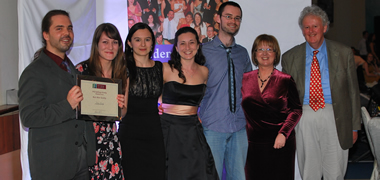
Tuesday, 3 April 2012
The NUI Galway Society Awards 2012 took place recently in the Radisson Blu Hotel with 26 awards presented to students. The Society Awards celebrate the contribution which over 100 societies make to the University and the wider community. This year, the NUI Galway societies organised almost 4,000 events of educational, cultural, social and humanitarian value. In the last eight years NUI Galway’s societies have contributed over €1.5 million to charity, with the 863 committee members volunteering to the equivalent working hours as 95 full-time workers this year, with a turnover of over €1 million, making a significant financial contribution to the local community. The Business Society picked up three awards including Best Society, Best Online Presence and Best Large Publication. The Drama Society also scooped three awards, Best Poster, Best Photo for Paul O'Mahony from Galway City and Best Fresher for Christopher Moran from Arklow, Co. Wicklow. Best Individual Award went to Lily McGarry from Whitechurch, Co. Dublin, conductor of the Choral Society. Most Improved Society went to the Engineering Society, who reinvented themselves in conjunction with the opening of the new Engineering Building, and in addition to a packed programme of events, the society will send over 30 students to Zambia with Habitat for Humanity in June. Best Society Event went to the Music and Ents Society and Rock Soc for their band competition Witless. Best New Society was presented to the Lotus Society, who made yoga widely accessible to the student population, with the Physics Society picking up the Best Academic Society. Best Civic Contribution went to the Feminist Society, a new society which has made its presence felt on campus this year with a packed programme of awareness raising events. Most Soccesful Society went to the Musical Society, the Phoenix Award to An Cumann Craic and Best Multimedia Award presented to Michael Talty and the Film Society for their work on s:tv|Galway. Best Cultural Contribution went to Traditional Music Society and An Cumann Soisialta won two awards for publications for their Nuachtlitir an Acadaimh, and Chess and Go Society for their monthly publication Knight’s Atari. The Muscailt Awards, presented for contribution to the University Arts Week from the ArtsOffice, went to the Musical Society, Photo Soc and Comic Book Society. Dramsoc won the ALIVE award for volunteering.Special Achievement Awards were presented to: Laura Donnelly, Musical Society; Chemistry Society; Thor McVeigh, Organiser of Witless; Timothy Morrow, Lit & Deb Society; Sean Burke, Accountancy and Finance Society; Robyn Allen, for his contribution to numerous societies; Lisa Grant, Art and Fansci Societies; Ronan Gallagher, Dramsoc; Classics Soceity; FLAC (Free Legal Advice Centre) Society; Michael Slevin, French and Biz Society; and the International Students Society. The Lifetime Achievement Award went to Séagh MacSiúrdain from Galway City, and the Society Outstanding Achievement Award went to Nollaig O’Scannlain from Athlone, Co. Westmeath.Riona Hughes, NUI Galway Societies Officer, said: “The gala event is a fitting celebration of the extraordinary dedication and commitment of the students involved in societies. Not only do they make significant contributions to the campus and the wider community, but what they learn as individuals prepares them to take their place in the world as contributing citizens and augurs well for all our futures.” For information on NUI Galway’s Societies visit www.socs.nuigalway.ie. -ENDS-
>> Read full story about NUI Galway Societies Awards
Research Project Recruiting Pregnant Women to Combat Gestational Diabetes
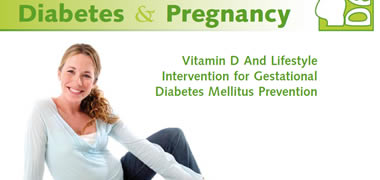
Tuesday, 3 April 2012
Vitamin D and Lifestyle Interventions to be Trialled Pregnant women are currently being recruited into a new NUI Galway-led clinical trial which hopes to develop effective measures to prevent Gestational Diabetes Mellitus (GDM). Participants will randomly receive either vitamin D or a specific diet or lifestyle intervention, including physical activity by a lifestyle coach or a combination of diet and physical activity. The trial hopes to establish whether any or all of these interventions prevent GDM, which can have serious consequences for mother and baby during the pregnancy and later in life. Vitamin D deficiency is more common in overweight and obese women and is associated with insulin resistance, a precursor of GDM. Leading Consultant Endocrinologist and Head of School of Medicine NUI Galway, Professor Fidelma Dunne is heading up the research: “Gestational diabetes occurs in 12% of pregnancies and carries with it increased risks for both mother and baby. This pan-European study will help inform us of the best strategy to prevent GDM and in doing so also prevent diabetes long-term in mother and infant.” The study is being coordinated through the HRB Clinical Research Facility at NUI Galway. Women who are less than 12 weeks pregnant and are overweight (BMI>29) and who will give birth at Galway University Hospitals are invited to participate on the study. All participants will be followed from 12 weeks of pregnancy until delivery. Gestational Diabetes Mellitus (GDM) is diabetes first diagnosed during pregnancy and is more common in women who are overweight or obese. Possible complications are oversized babies, birth trauma and even intra-uterine death. Neonatal abnormalities can also occur, including low blood sugar, difficulty breathing and jaundice. The maternal risks include an increased risk of caesarean delivery, pregnancy induced hypertension and pre-eclampsia. Professor Dunne explains: “GDM therefore, is a significant public health concern for women and their babies in Ireland. GDM can also lead to future diabetes in the mother and diabetes and obesity in the offspring. While diabetes is traditionally associated with sedentary lifestyle and unhealthy diet, the currently observed growth in developed countries is greater than expected from lifestyle changes alone. Evidence is accumulating that GDM is a more important contributor to these epidemics than previously recognised.” The research is part of a large scale, pan-European research project involving 13 partners from 11 countries, and over 800 pregnant women. The DALI project is funded by a European FP7 grant totalling €4 million. Those interested in finding out more about the study should contact Professor Fidelma Dunne or Veronica McInerney, Clinical Manager at the Clinical Research Facility, NUI Galway on 091 495964. -ends-
>> Read full story about Research Project Recruiting Pregnant Women to Combat Gestational Diabetes
Experts Gather to Plan for ‘Gold Rush’ to the Bottom of the Ocean
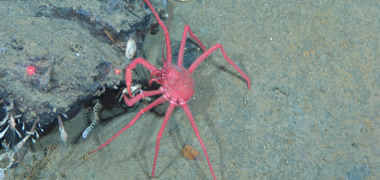
Wednesday, 4 April 2012
Researchers at NUI Galway’s Ryan Institute are at the centre of conservation efforts in relation to mining for precious minerals at the depths of our oceans. In this new ‘gold rush’, the ecological assessment of the effects of mining operations will be key to sustainably exploiting resources at these very important habitats, according to organisers of a major workshop next week. The Ryan Institute’s Patrick Collins and Dr Bob Kennedy have scheduled a high-level international workshop from 10-12 April with the aim of standardising methods used for assessing the ecological impacts of commercial mineral extraction at deep-sea hydrothermal vents. Sometimes called ‘black smokers’ these volcano like structures sit thousands of metres under the sea and produce “seafloor massive sulphides”, sediments that are very rich in copper, zinc, gold and silver. They also support an array of unique life forms. The minerals found at hydrothermal-vents are increasingly in demand, for potential uses in the production of superconductors, precision lasers and other electronics. “We are seeing a gold rush to the bottom of the sea”, says Dr Bob Kennedy, an expert in benthic (sea floor) ecology with the Ryan Institute at NUI Galway. “Valuing the goods and services provided by ecosystems is always a difficult compromise. Mining hydrothermal vents involves the removal of the vents and adjacent seafloor massive sulphides using cutting and suction devices to transfer the ore to barges at sea. Where mining occurs, the habitat will be completely removed and there will be substantial disturbance to the adjacent area.” The workshop, VentBase, is supported by the International Seabed Authority and InDeep, the international network for scientific investigations of deep-sea ecosystems. VentBase is set to attract academics and high-profile delegates from all over the world, including delegations from government bodies such as IFREMER in France, JAMSTEC in Japan, KORDI in Korea and NIWA in New Zealand. Commercial mining companies will also attend, with a presentation by Nautilus Minerals, the first company to actually begin mining. At present there is just one site, Solawara 1 near Papua New Guinea, where mining is being actively developed. It has led to many calls in the scientific community and general press for a halt to mining at hydrothermal vent sites because of their high biodiversity value. A biologist with the Ryan Institute at NUI Galway, Patrick Collins was part of an expedition last summer which discovered a new hydrothermal vent site in the Atlantic. While actual mining is probably a decade away in the North Atlantic, he believes this is the ideal time for Ireland to take a central role in managing this unique biological resource. He comments: “From a conservation perspective, vents are one of the last remaining wild frontiers. We are only beginning to scratch at the surface of this enormous biotechnological resource. Animals at these sites have adapted to a very harsh, toxic and radioactive environment. Their tissue often has increased regenerative powers and may hold secrets to new medicines and useful materials. Life at these depths is not based on photosynthesis, but on turning energy from the earth’s core directly to biomass. This may be a good model for what life on other planets may be like. We should value giant tubeworms and bizarre blind shrimp for their quasi alien nature, and for reminding us that there is always the possibility of innovation in solving any problem, even if it seems like alchemy at first glance.” Despite there being data available from many cruises to investigate hydro-thermal vents, the information is often collected in a different way by each operator, meaning that it is very hard to compare vent sites to each other and to use evidence to make general statements about important processes at vent sites. The organisers of VentBase hope the event will help to develop protocols for the collection of rigorous and comparable evidence from many hydrothermal vents sites around the world. “The pulse of progress in the deep-oceans quickened after the announcement of James Cameron’s successful solo-expedition to its deepest recess,” says Dr Kennedy. “Cameron was only the third human to touch down and the first to film the 11km depths of the Marianas Trench. To put this in context, four times as many people have walked on the moon and over five hundred people have been into space. The deep sea is largely unknown territory and we must consider many ecological aspects before we throw open the doors to mining.” To listen to Patrick Collins on Radio One click here ENDS
>> Read full story about Experts Gather to Plan for ‘Gold Rush’ to the Bottom of the Ocean
BioInnovate Ireland Fellowships to Focus on Urology and Radiation Therapy
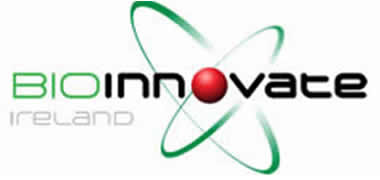
Wednesday, 4 April 2012
BioInnovate Ireland is delighted to announce the recruitment of the next elite, multidisciplinary teams for the start of the 2012 Fellowship Programme which commences in August this year. Now in its second year, BioInnovate is a specialist training programme modelled on the Biodesign programme offered at Stanford University. The BioInnovate Ireland Fellowship Programme was developed in 2010 and delivered by a consortium of Higher Education Institutions with the overall aim being the training of graduates to support the creation of new, cost-effective medical devices that improve patient care through a collaborative approach that focuses on the needs of patients, physicians and the health care industry as a whole. The two new Fellowship teams, each consisting of eight fellows, will be immersed in a medical device innovation microclimate and connected to biomedical engineering, product design, clinical, finance and business expertise. The Clinical focus for the 2012 Fellowship programme is Urology and Radiation Therapy with both NUI Galway and the University of Limerick hosting the 2012 teams. Dr Mark Bruzzi, Programme Director based at NUI Galway, commented: “The standard of applications and competition for the Fellowship teams this year was very high with interest expressed from as far as India and China which demonstrates the excitement and appetite that exists amongst the Irish and international med tech environment for this type of programme.” The impetus for the development of this specialist training programme emerged from the 2010 Innovation Taskforce Report. The new programme aims to hot-house, in the space of 10 months, talented individuals with multidisciplinary backgrounds to explore and develop in teams, opportunities for innovative medical devices. Professor Tim McGloughlin from UL added: "We are delighted to host a BioInnovate Fellowship Team at the University of Limerick. This programme can transform the product development process in medical device technology while creating exciting new business opportunities by linking the academic and clinical environment to one of Ireland's most vibrant industrial sectors." It is envisaged that the BioInnovate Ireland Fellowship Programme will act as a catalyst for enhancing innovation in medical device development within Ireland. The successful recruitment of eight Fellows to work in two elite multidisciplinary teams is now complete and these two teams will focus on Urology and Radiation Therapy, identifying unmet needs, inventing solutions to meet those needs and implementing the solutions the Fellows will then map a route to commercialisation to enable these solutions to enhance patient care. Professor Frank Sullivan, Director of the Prostate Cancer Institute, NUI Galway, and Lead Clinician, Department of Radiation Oncology, Galway University Hospitals, welcomed the recruitment of this year’s teams. “The ability to look at the clinical problems we face on a daily basis, with a fresh perspective, is highly appealing. The prospects for novel diagnostic and therapeutic approaches have never been greater in both the fields of surgery and radiation oncology. We hope to focus the 2012 BioInnovate Fellows on the opportunity of developing exciting new therapies for prostate cancer. Ireland has the highest incidence of prostate cancer in Europe, and GUH in partnership with the PCI, are very excited to have individuals of such high calibre to work with.” The current Fellowship teams, due to complete the inaugural BioInnovate Progamme, are progressing their output of the 2011-12 programme with both the NUI Galway and the DCU teams focusing on developing and commercialising their concepts by summer 2012. Dr Bruzzi added: “BioInnovate Ireland will have achieved its primary output with the next generation of specially trained Fellows and skill graduates emerging this summer. This wealth of Med Tech BioInnovate talent will add value to the med tech market place over the coming months and we look forward to sharing the commercial opportunities and proposals as a result of the current Fellowship programme in May 2012.” ENDS
>> Read full story about BioInnovate Ireland Fellowships to Focus on Urology and Radiation Therapy
Galway Signs up to Welcome 700,000 Visitors for 8-Day Volvo Ocean Race Festival
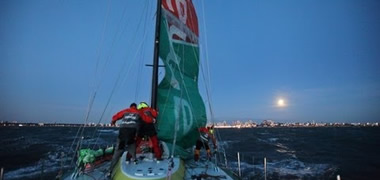
Wednesday, 11 April 2012
NUI Galway and CPL Announced as Official Partners More than 500 volunteers have signed up to help out when the Volvo Ocean Race – the largest sporting event to hit Ireland this year and watched by 2 billion viewers worldwide – crosses the finish line in Galway in July. But, there is still time to step up as a total of 2,000 volunteers need to be signed up over the next few weeks. Latest figures were revealed at the launch of the partnership of Volvo Ocean Race Galway with educational partners NUI Galway and recruitment partners CPL which took place durign Easter. Key speaker at the launch was Mayor of Galway City, Cllr Hildegarde Naughton who said that the support that NUI Galway and CPL provided made the made the festival possible and make it a very successful event. CPL have joined as the recruitment partner to take on the mammoth task of facilitating and coordinating the Volunteers that sign up, whilst NUI Galway as education partners will bring its considerable experience in the field of volunteering. Both organisations will to work with non-profit event organiser Let’s Do It Global to help recruit and train over 1200 volunteers required to run the 9-day festival. And, it seems that Galway is keen to offer a céad míle fáilte to the 700,000 expected visitors to its environs from June 30 to July 8 as people of all ages queued up at the launch for several hours on Wednesday evening to register their support. The volunteers are needed to help run the eight day festival organized by Lets Do It Global to celebrate the ending of the Volvo Ocean Race and will embrace everything from concerts, entertainment, arts, food, ice rinks and everything else in between. The festival has been created to embrace both consumer likes and business demands. A huge variety of sporting, kids, music and cultural events will be taking place in the Race Village. And a business expo, bringing together the best Irish companies and leaders with international financiers and potential partners in the areas of Green, Food and Marine, will take place during the festival in the Global Village. The majority of volunteers will be stewarding the Race Village and the Global Village car parks. Other volunteers will man the numerous Information and merchandising stands across the festival site. And volunteers who don’t mind getting wet and are qualified in areas such as sailing, first aid and/or are senior sailing instructors will assist on water. President of NUI Galway, Dr Jim Browne said: “NUI Galway is delighted to be on board with the Volunteering Programme for the second time. As Ireland’s leading University for student volunteering, we will bring our considerable expertise in the field of volunteering to bear in helping to mobilise and train the small army of volunteers required to ensure the smooth running of the 2012 Race. “Volunteers were key to the success of the Galway Stopover in 2009. They were the face of the event to visitors, and were really the heart and soul of the two-week festival. This time round I have no doubt the volunteers will make the same impact and will make a huge contribution to the overall success of the Race.” Last time the racing yachts from the contest came to town was in 2009 when Galway was a stopover point. Some 650,000 people visited the Race Village and 10,000 people lined the harbour walls at 3am on the morning of May 24 to welcome the Volvo Ocean Race fleet into Ireland. The Volvo Ocean Race is known as the ‘Everest of Sailing’ and is a nine-month marathon of the seas passing through four oceans and five continents covering 39,270 nautical miles. All volunteers will be invited to the Wrap-Up Gala and there will be prizes and surprises along the way. Further information sessions will take place throughout April and May at various locations around Galway. Applicants will be matched to roles in early June. For more details, visit www.volvooceanracegalway.com ENDS
>> Read full story about Galway Signs up to Welcome 700,000 Visitors for 8-Day Volvo Ocean Race Festival















